Service dogs… Lifelong partners tasked with aiding their owners with disabilities and supporting their needs in daily life. With the use of these specially trained animals becoming more popular, you may have already come to the conclusion that the addition of a service dog to your life is your next step in becoming more independent. But now what? You may be familiar with the fact that not all dogs are capable of becoming service dogs, but then where do you start to find the ones that are? Exploring the next big step in acquiring a puppy to train as your service dog takes some forethought. Make sure you can answer these questions before making a purchase.
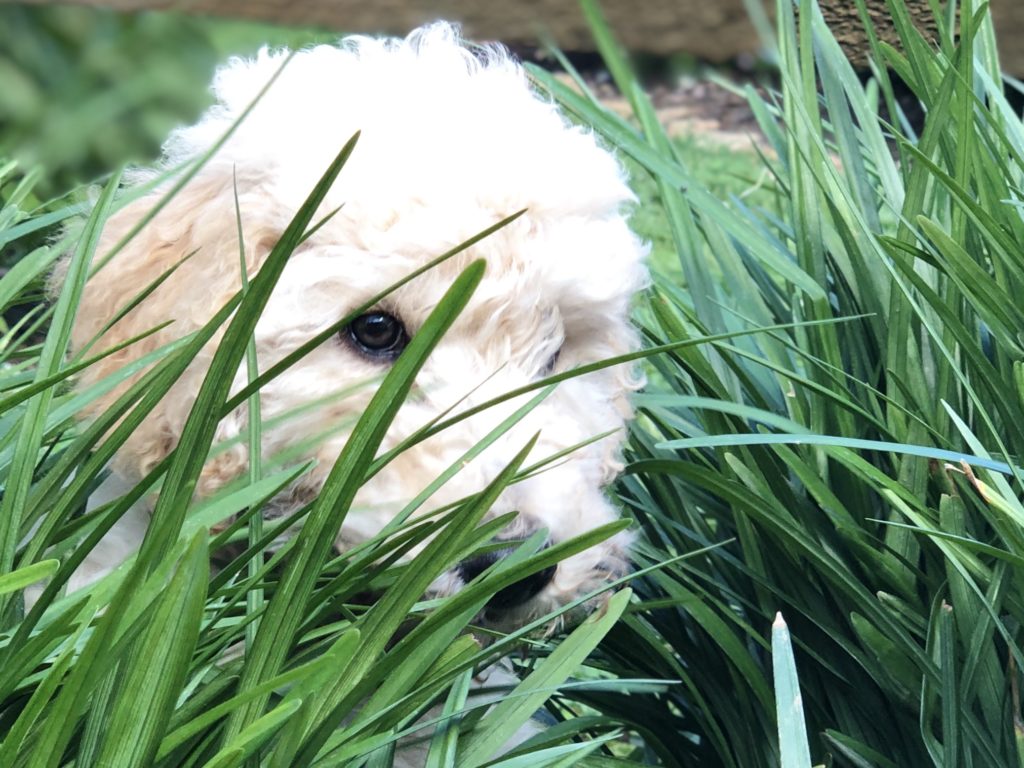
First Step in Your Service Dog Journey
Before jumping into decisions regarding a puppy, your first step is to think of your specific needs. What do you need this service dog to do for you? Many pet owners are mismatched in energy level and temperament type due to too little research and allowing desires to drive decisions. Understanding your needs and capabilities is a critical first step to choosing your service dog puppy. Would a dog that is capable of supporting your weight while transferring out of a wheelchair be necessary? Or would a smaller, energetic dog be more useful to quickly alert you to sounds in your environment if you are deaf? The ADA (Americans with Disabilities Act) does not limit breeds as service dogs. This is not so that each person can have their dream breed. It is because every breed is different, as is every person’s individual needs. The breed of your puppy may not be what you want but rather what you need.
Though picking out your breed may feel most important, it is far more important to look at the individual puppy’s qualities. Though Labrador Retrievers are commonly used as service dogs, simply because a puppy is a purebred Lab does not mean it would be capable of service work. Because of this, it’s important not to let the claims of breeders sway your decisions. Professional service dog trainers understand that simply because a puppy is well-bred with parents whom the breeder claims “produce service dog quality puppies” does not mean every puppy from the litter would be a good candidate. Regardless of genes, every puppy will have its own strengths, weaknesses, and personality. Even professional service dog trainers that breed their own puppies for use as service dogs understand and expect that it’s possible only half the litter or even far less will make it through a service dog training program.
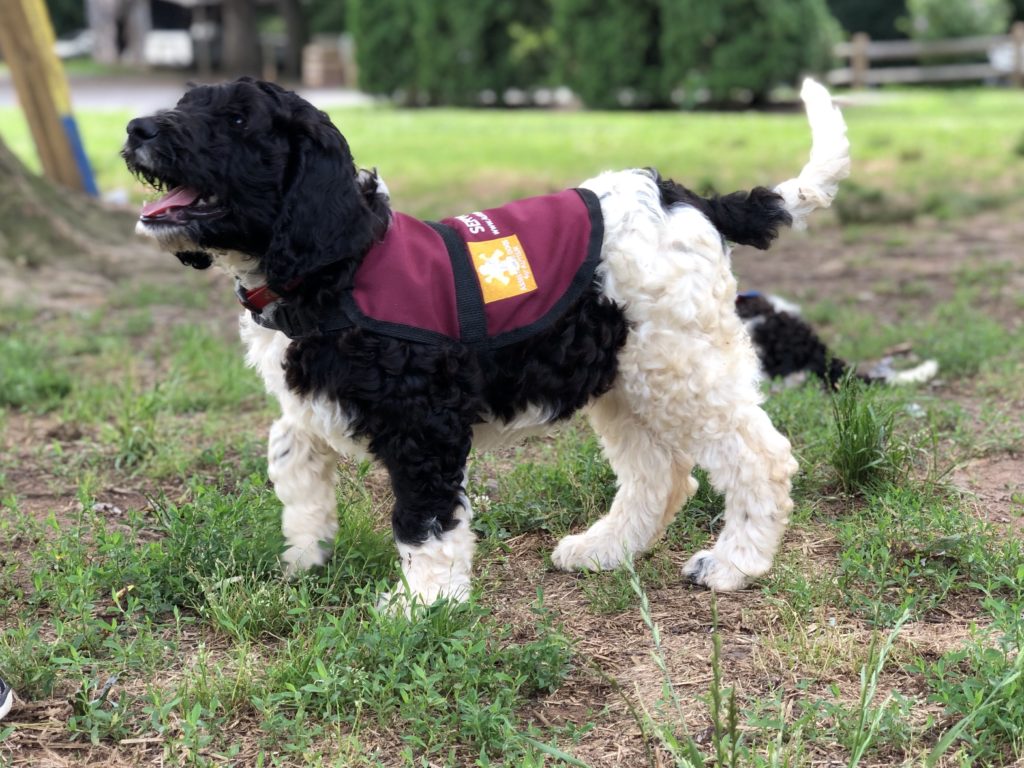
Qualities of a Great Service Dog Candidate
Due to the vast array of personalities and temperaments in dogs, it is important not to take the selection of your puppy lightly. Regardless of the amount of socialization you work on with your puppy, sometimes certain dogs simply aren’t meant to be service dogs. To help increase the outcome that your puppy will become your perfect service dog, look for these qualities when testing puppies:
1. Physical Capabilities of the Dog
This may seem like common sense but it is definitely worth mentioning. Speak with the breeder about the expected size of the puppies once they reach maturity. Are there any health risks with the breed you’ve selected? Make sure you are able to view the parents and ensure they are in good health. Always be thinking – Will this dog be capable of assisting me with my needs?
2. Confidence is Not Lacking
We call this environmental stability. An environmentally stable dog is one that is not scared, nervous, or reactive toward new things. If a dog startles and tries to run and hide from whatever scared it, it would not be considered an appropriate candidate for service work as it can cause dangerous situations and would not be able to do its job due to its nervous temperament. Look for confidence and a willingness to interact with new objects, noises, environments, etc.
3. Motivation for the Job
As a working dog, your service dog will need to show an interest in learning and working with you. As a puppy, everything will be new and it won’t have an understanding of commands yet, of course. But you can check to see how much drive the puppy has by offering possible motivating items (such as treats, toys, etc.) and seeing how interested the puppy is in following and trying to obtain the motivators.
In addition, think about how much this dog will need to do for you and how much you will be using it. Some service dog jobs require fairly active dogs whereas others could use more laid back dogs.
3. An Impressive Tolerance Level
Due to the job description of a service dog and their ability to accompany and work for their handler in most public areas, service dogs will be exposed to A LOT. Because of this, it is extremely important for service dog candidates to show a high tolerance level for spacial invasion, strangers, and suddenly bring touched or grabbed. Just because your service dog may have a sign that says “Do Not Pet” does not mean the toddler you pass won’t reach out and grab your dog’s tail as you walk past. Things can and will happen and your service dog will need to be fairly comfortable with it. Any signs of aggression, whether out of irritation or fear, cannot be tolerated. Though in most cases, you can condition your puppy to tolerate these things with positive rewards and experience, you can help make this easier by seeking out a puppy that enjoys interaction and has a more easygoing personality.
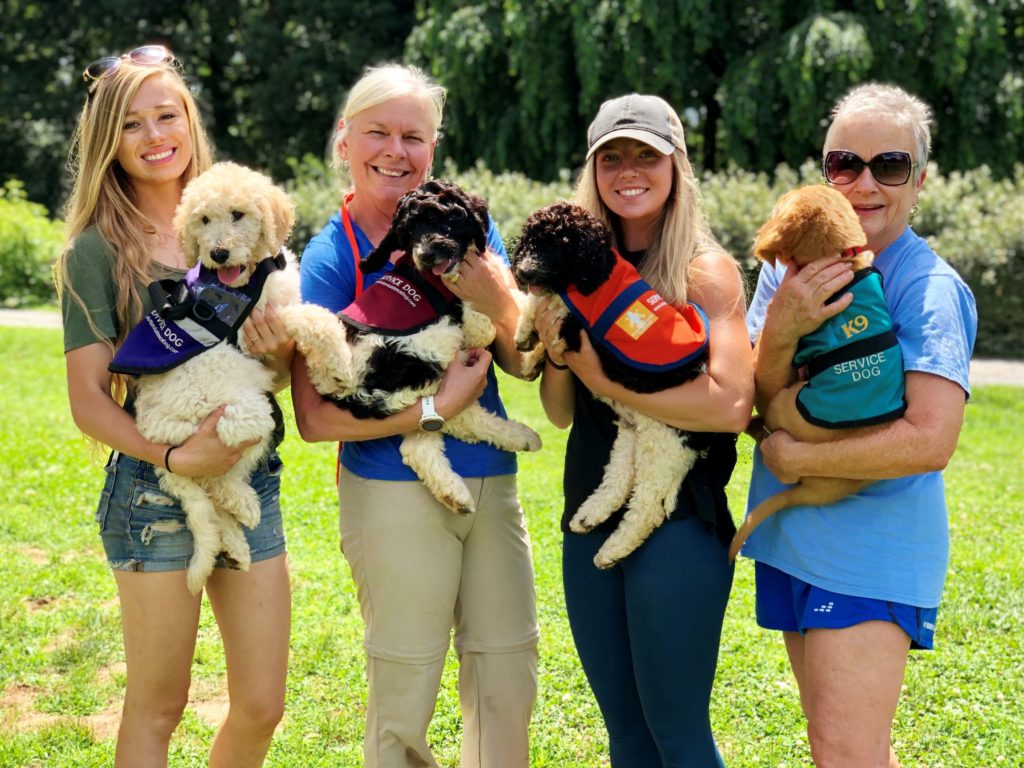
What else can you do?
The selection of a service dog candidate can be an exciting endeavor but many people end up over their heads. It’s easy to begin feeling overwhelmed, particularly when the puppy you thought was perfect begins having troubling issues. Working with a reputable service dog trainer can help a lot! Trainers with experience specifically in the service dog industry will be knowledgeable about what to look for in a candidate and how to properly raise them.
At Highland Canine Service Dogs, our trainers personally select and raise multiple service dog candidates at a time. It’s important to understand that puppies can change as they mature and their personalities develop. Because of this, we raise puppies and get to know their temperaments, strengths, weaknesses, and motivations before matching them with an individual. We strive to not only offer the best service dogs but also provide families with a perfect match. This combination is imperative to the success of a service dog team.
Questions?
If you are thinking about starting your service dog journey but aren’t sure yet, let us know! We would be happy to answer any questions you may have and assist with getting you on the path that’s right for you.
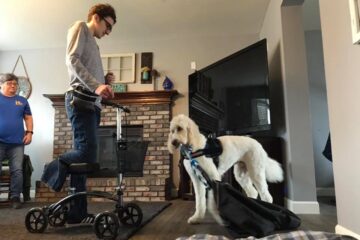
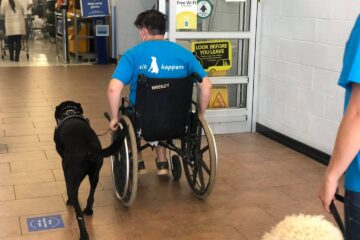
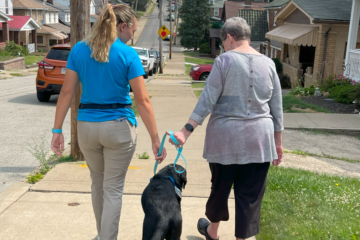
0 Comments